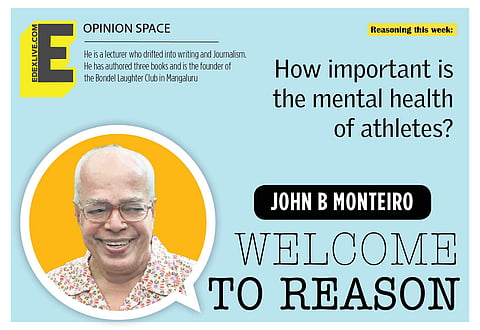

When you go out onto that field, it’s going to be war. Sportsmanship is playing to the best of your abilities and then, afterwards, shaking your opponent’s hand
— Bruce Grobbelaar (b 1957), Zimbabwean footballer
It is easy to shake hands and keep smiling when you lose as a team. As is the case in football, where Bruce played as a goalkeeper for the English team, Liverpool, as well as the Zimbabwean national team. But it is a different ball game when it is a one-to-one game, as in the case of tennis singles. What I am referring to is the news of Naomi Osaka — a Japanese tennis star, four-time major winner and Number 2 in the WTA Tour — who has raised the issue of mental health. First, the facts as reported in the media: The tennis star posted on social media that she was going to decline press conferences during the French Open tournament due to mental health issues.
Explaining her decision, Osaka said, “People have no regard for athletes’ mental health. This rings true whenever I see a press conference or partake in one. We have often sat there and answer questions that we’ve been asked multiple times before or asked questions that bring doubt into our minds. I’m not going to subject myself to people who doubt me.”
The 23-year-old, the highest-earning female athlete ($55.2 million over the last 12 months) with an enviable portfolio, added that she had watched multiple clips of sportspersons breaking down in the press room after a loss. Osaka came down hard on her post-match interactions saying, “That whole situation is kicking a person when they are down. I don’t understand the reasoning behind it.”
While reactions on social media have been extreme, Osaka received significant support from her younger fan base. Anushka Juliet, a sports psychologist who has worked with a cross-section of athletes at home in India and in the UK where she completed her master’s, applauded Osaka. The Bengaluru-based professional explained, “When an athlete is constantly questioned, especially about the how and why of a loss, it could lead to self-doubt, low self-esteem and even motivational issues. This could affect the athlete as early as their next match. I don’t think Osaka has cast herself with or against anyone, she’s only protecting herself.”
Tennis players are required to address press conferences after each match and after finals at Grand Slams. Players can be fined up to $20,000 for skipping a news conference at a Grand Slam. Osaka hopes that the “considerable amount” that she expects to be fined will go towards a mental health charity.
